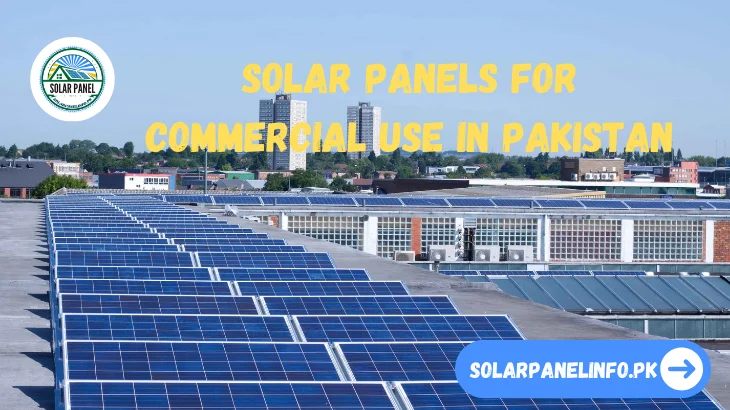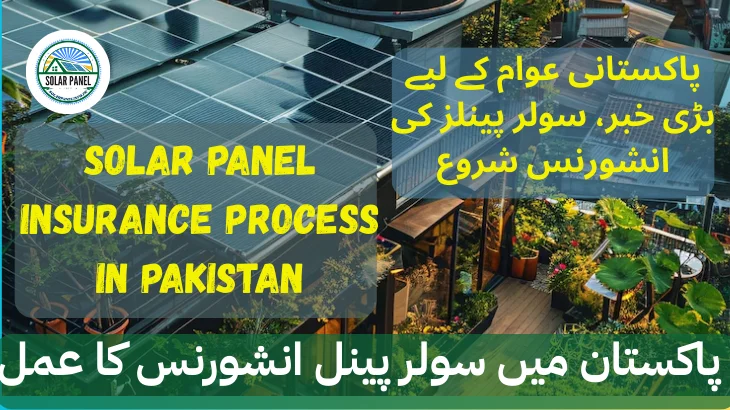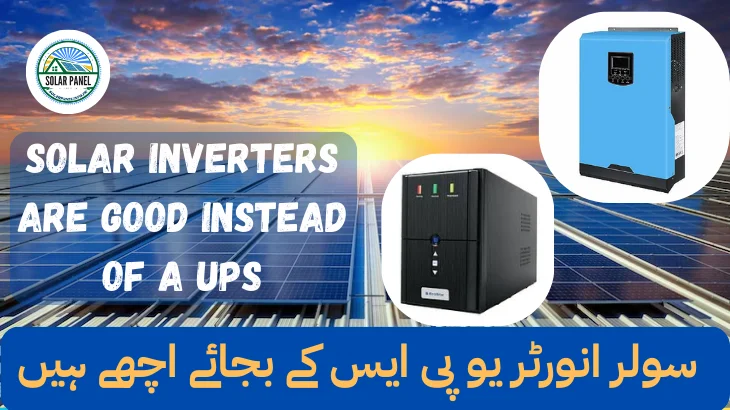Solar Panels for Commercial Use in Pakistan
More and more commercial entities are looking toward solar energy as a long-term solution to Pakistan’s rising electricity prices and frequent power cuts. With solar technology getting advanced and installations ever more affordable, solar panels for commercial purposes have become a feasible and increasingly preferred option for business entities all over the country. Here, we will discuss Solar Panels for Commercial Use in Pakistan.
Read Also: Solar Panel Recycling Program

زیادہ سے زیادہ تجارتی ادارے پاکستان میں بجلی کی بڑھتی ہوئی قیمتوں اور بجلی کی مسلسل کٹوتیوں کے طویل مدتی حل کے طور پر شمسی توانائی کی طرف دیکھ رہے ہیں۔ سولر ٹکنالوجی کے جدید ہونے اور تنصیبات کے پہلے سے زیادہ سستی ہونے کے ساتھ، تجارتی مقاصد کے لیے سولر پینل پورے ملک میں کاروباری اداروں کے لیے ایک قابل عمل اور بڑھتے ہوئے ترجیحی اختیار بن گئے ہیں۔
Why Go Solar for Commercial Purposes?
Houses, Government buildings, large private estates, and other institutional buildings or structures consume quite a lot of energy. They are considerable, every factory, office building, retail shop, hospital, and educational institution. Nevertheless, while solar power may be regarded as cost-effective because one cannot rely on the national grid anymore and has to pay exorbitant bills to utilities, it is also reliable.
Key Benefits:
- Reduced Electricity Bills
Solar systems help offset grid consumption, significantly lowering operational energy costs. - Energy Independence
With net metering policies, businesses can generate and supply excess energy back to the grid, reducing dependency on utility providers. - Environmental Impact
Solar energy is a clean and renewable type, and it lends a hand in helping companies reduce their carbon footprints, thus gaining importance with customers and partners who are environmentally conscious. - Increased Property Value
Generally, commercial buildings that have been integrated into the solar system are preferred by tenants and investors.
Commercial Solar Panels in Pakistan
Businesses in Pakistan are increasingly adopting solar energy to offset rising electricity costs and frequent power outages.
پاکستان میں کاروبار بڑھتی ہوئی بجلی کی قیمتوں اور بار بار ہونے والی بجلی کی بندش کو کم کرنے کے لیے شمسی توانائی کو اپنانا شروع کر رہے ہیں۔
Key Benefits / اہم فوائد
Reduced Electricity Bills
بجلی کے بل میں کمی
Energy Independence
توانائی میں خودمختاری
Environmental Impact
ماحولیاتی اثر
Increased Property Value
جائیداد کی قدر میں اضافہ
Projected Annual Savings
Commercial Solar Pricing
| System Size | Estimated Cost | Payback Period |
|---|---|---|
| 10 kW | PKR 1,200,000 | 3-4 years |
| 50 kW | PKR 5,500,000 | 4-5 years |
| 100 kW | PKR 10,000,000 | 5 years |
| 500 kW | PKR 45,000,000 | 5-6 years |
Battery Backup Sizing Calculator
Net-Metering Application Checklist
- Submit application to utility company
- Provide building/site ownership proof
- System design approval
- Install certified solar system
- Inspection and meter installation
Current Market Trends in Pakistan
In Pakistan, commercial solar installation obtained an accelerated momentum, particularly in the commercial cities and industrial settings like Karachi, Lahore, and Islamabad. This trend has become clear due to the following reasons:
- Falling prices of solar panels and inverters,
- Government exemptions on solar imports,
- Increasing attention to sustainable business practices,
- Support for net metering by NEPRA (National Electric Power Regulatory Authority).
Notwithstanding the inconsistent policy environment, the commercial solar sector is organically growing, with many SMEs and large companies investing in rooftop and ground-based systems.
Commercial Solar System Options
Based on the business scale and energy requirement, a commercial solar system can vary in size from 10kW up to 1MW and beyond. The systems can generally be classified as:
- On-Grid Systems(Connected to the power grid; enjoy net metering benefits).
- Off-Grid Systems(Standalone; useful for remote areas).
- Hybrid Systems(Solar power integrates batteries for energy storage/conversion into electricity onsite for backup use).
Read Also: solar system
Investment and Payback
The setup of a solar panel system appears as a high investment at the beginning stage, but the pay-back duration has been used to be between 3 and 5 years based on the size and application of the system. Only with increased return on investment does it make financial sense with solar systems. Installing solar systems would be an expensive project for an individual, though some payback periods are available, ranging anywhere from 3 to 5 years, depending on the system size and application. With increasing electricity tariffs, the payback period would accelerate, making a solar system an attractive financial proposition.
Challenges to Consider
- Inconsistent Policies: Sudden modifications in net metering regulations can affect returns from investments.
- Technical Knowledge: The Quality of installation and sizing of the system is vital for performance.
- Maintenance: Solar systems require periodic cleaning and checks to ensure efficiency. Though they are minimal.
Conclusion
Solar commercial use is an economic energy production in Pakistan and introduces a sense of sustainability in business practices. As the cost of conventional electricity rises and solar technology becomes increasingly familiar in Pakistan, businesses throughout the country are rethinking how they will power their operations. When carefully planned and invested, solar energy can enable Pakistani businesses to become greener, smarter, and more independent. Here we will discuss Solar Panels for Commercial Use in Pakistan.
شمسی توانائی کا تجارتی استعمال پاکستان میں ایک اقتصادی توانائی کی پیداوار ہے اور کاروباری طریقوں میں پائیداری کا احساس متعارف کراتا ہے۔ جیسے جیسے روایتی بجلی کی قیمت بڑھ رہی ہے اور پاکستان میں شمسی ٹیکنالوجی تیزی سے جانی جاتی ہے، ملک بھر کے کاروبار اس بات پر دوبارہ غور کر رہے ہیں کہ وہ اپنے آپریشنز کو کس طرح طاقتور بنائیں گے۔ جب احتیاط سے منصوبہ بندی اور سرمایہ کاری کی جائے تو، شمسی توانائی پاکستانی کاروباروں کو سرسبز، ہوشیار اور زیادہ خود مختار بننے کے قابل بنا سکتی ہے۔
FAQ’s
Is solar energy cost-effective for commercial use in Pakistan?
Yes, despite the initial investment, solar systems reduce electricity bills significantly and usually offer a payback period of 3 to 5 years.
Can businesses in Pakistan benefit from net metering?
Yes, under NEPRA’s net metering policy, businesses can sell excess electricity back to the grid, reducing dependency on utility providers.
What type of commercial solar systems are available?
Commercial options include on-grid (with net metering), off-grid (for remote areas), and hybrid systems (with battery storage for backup).


